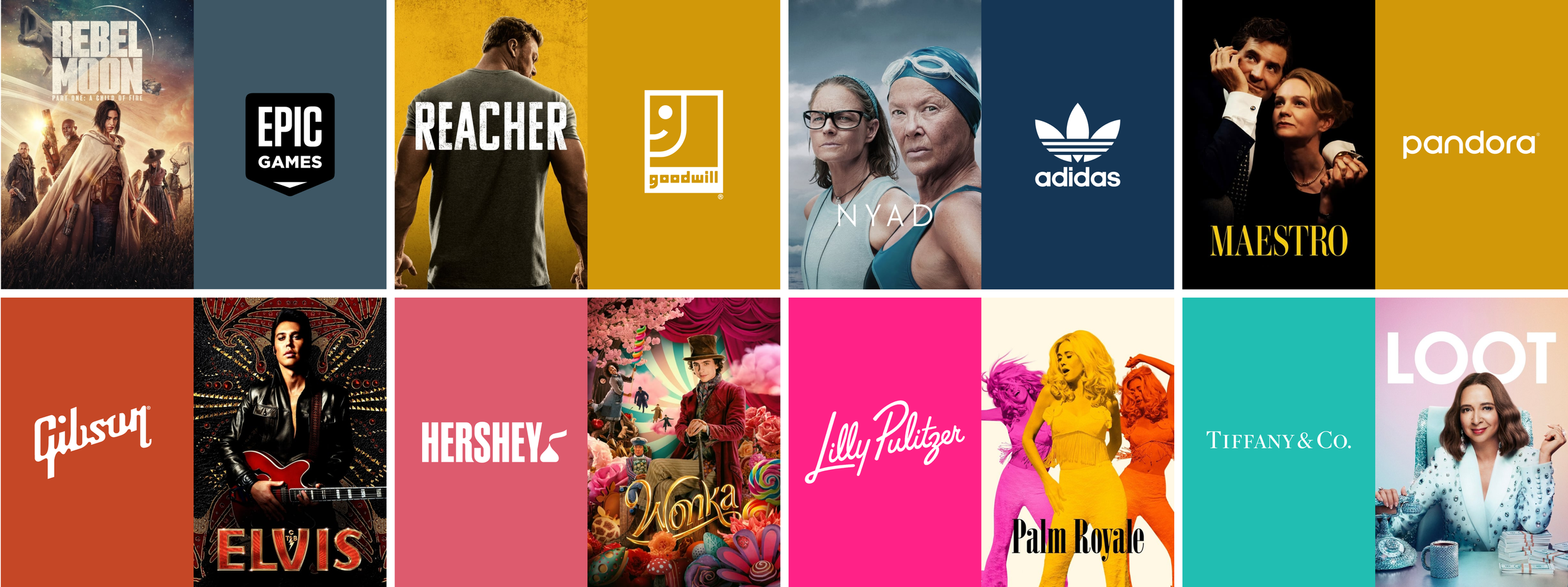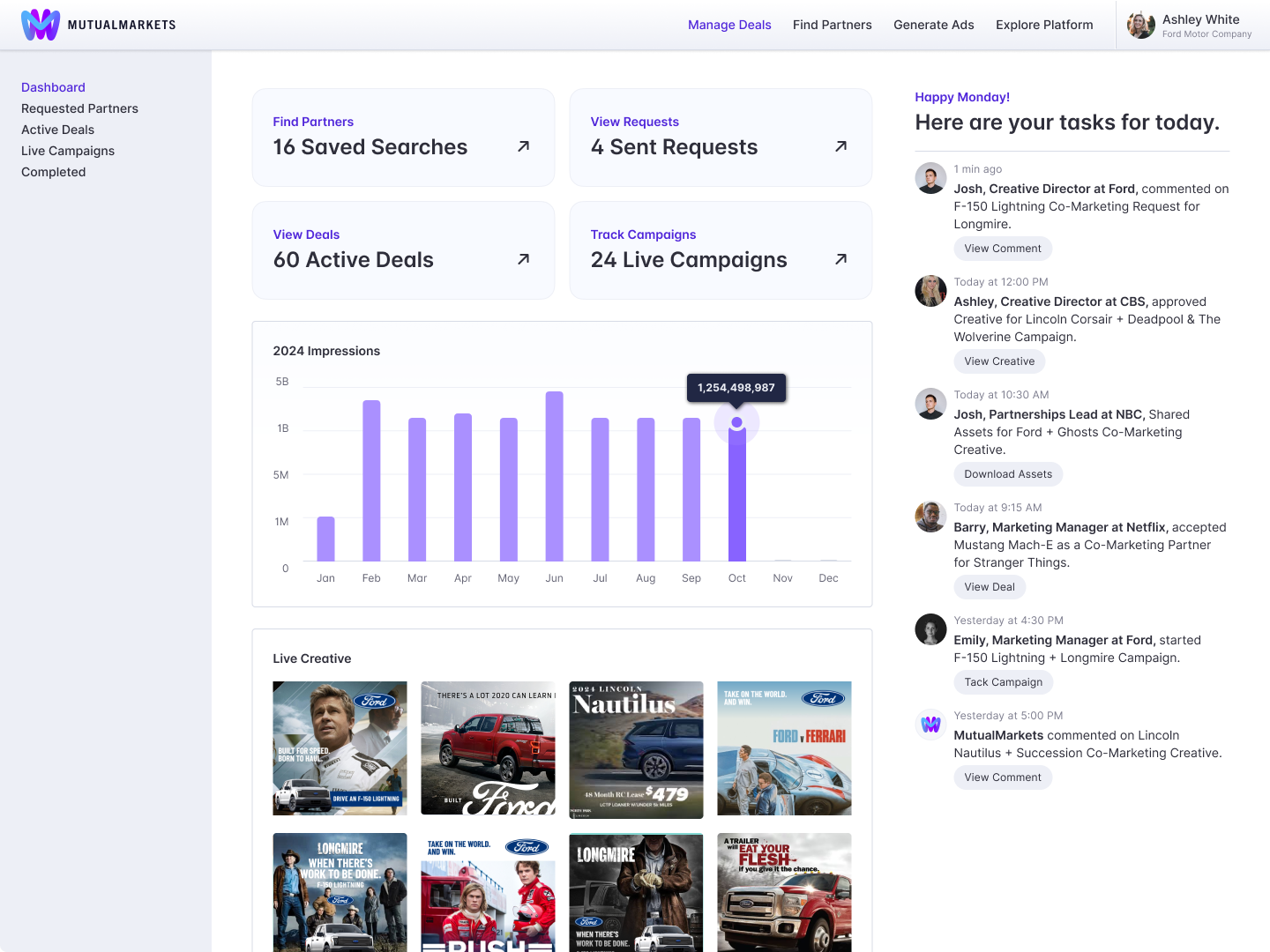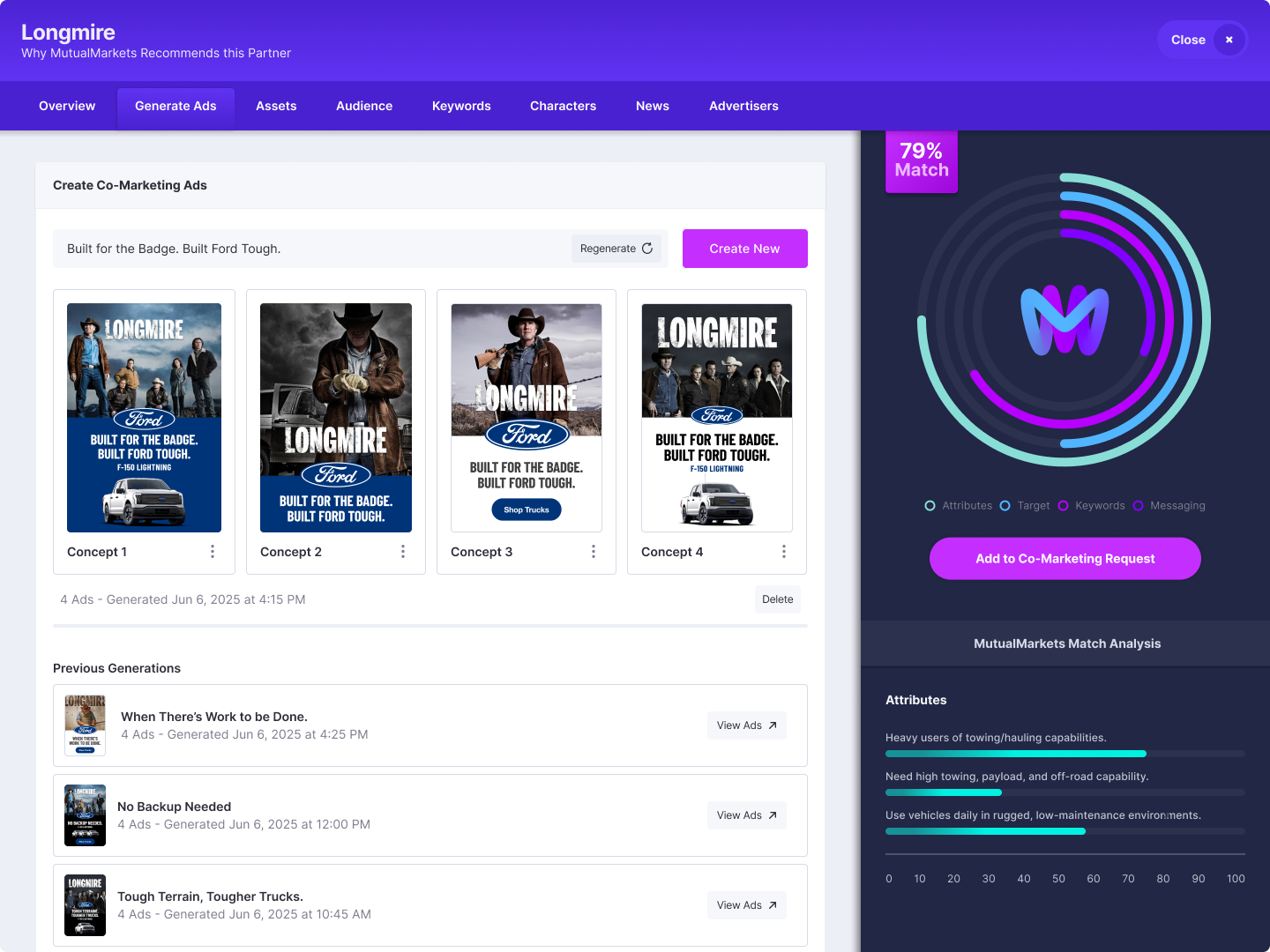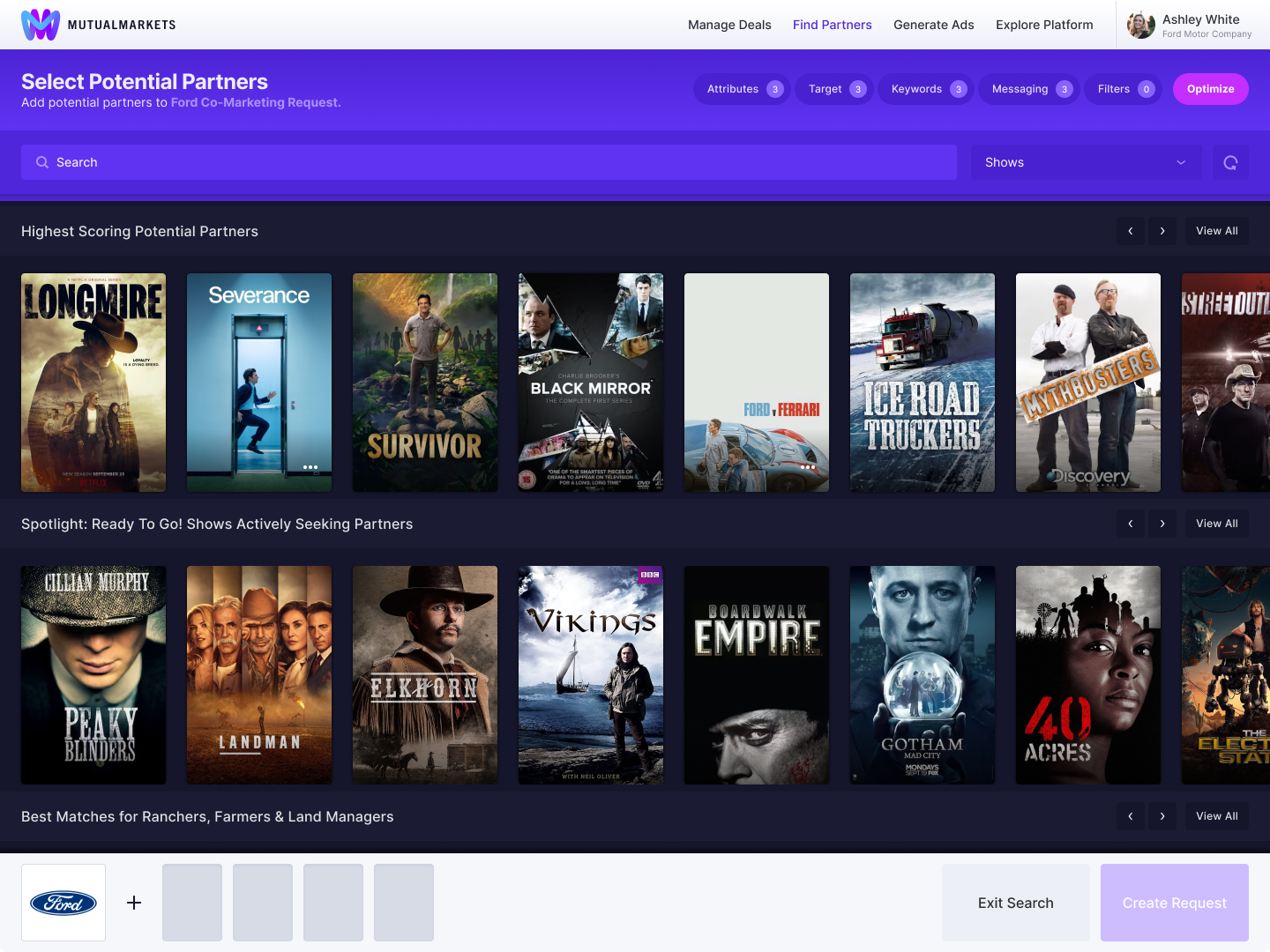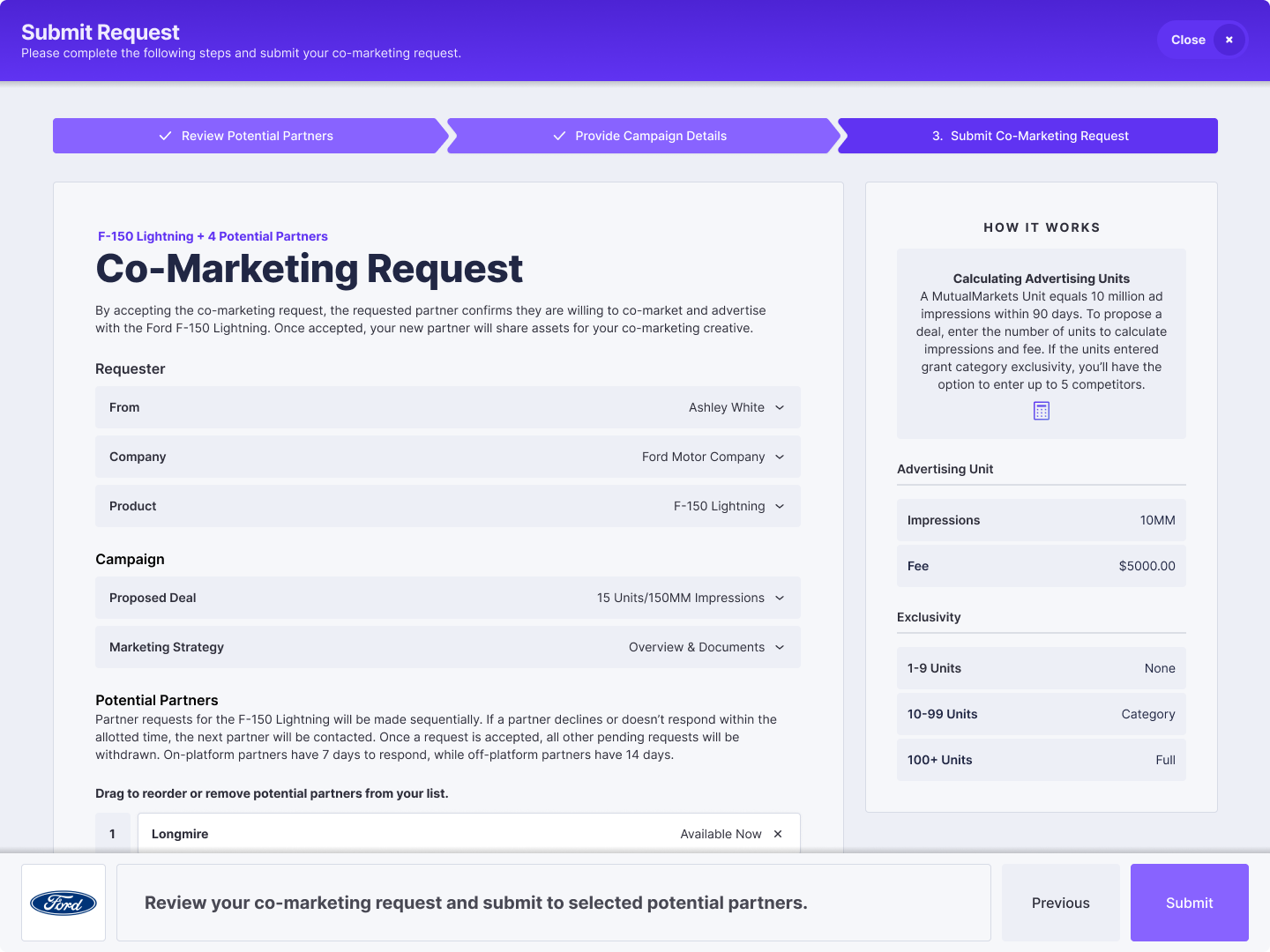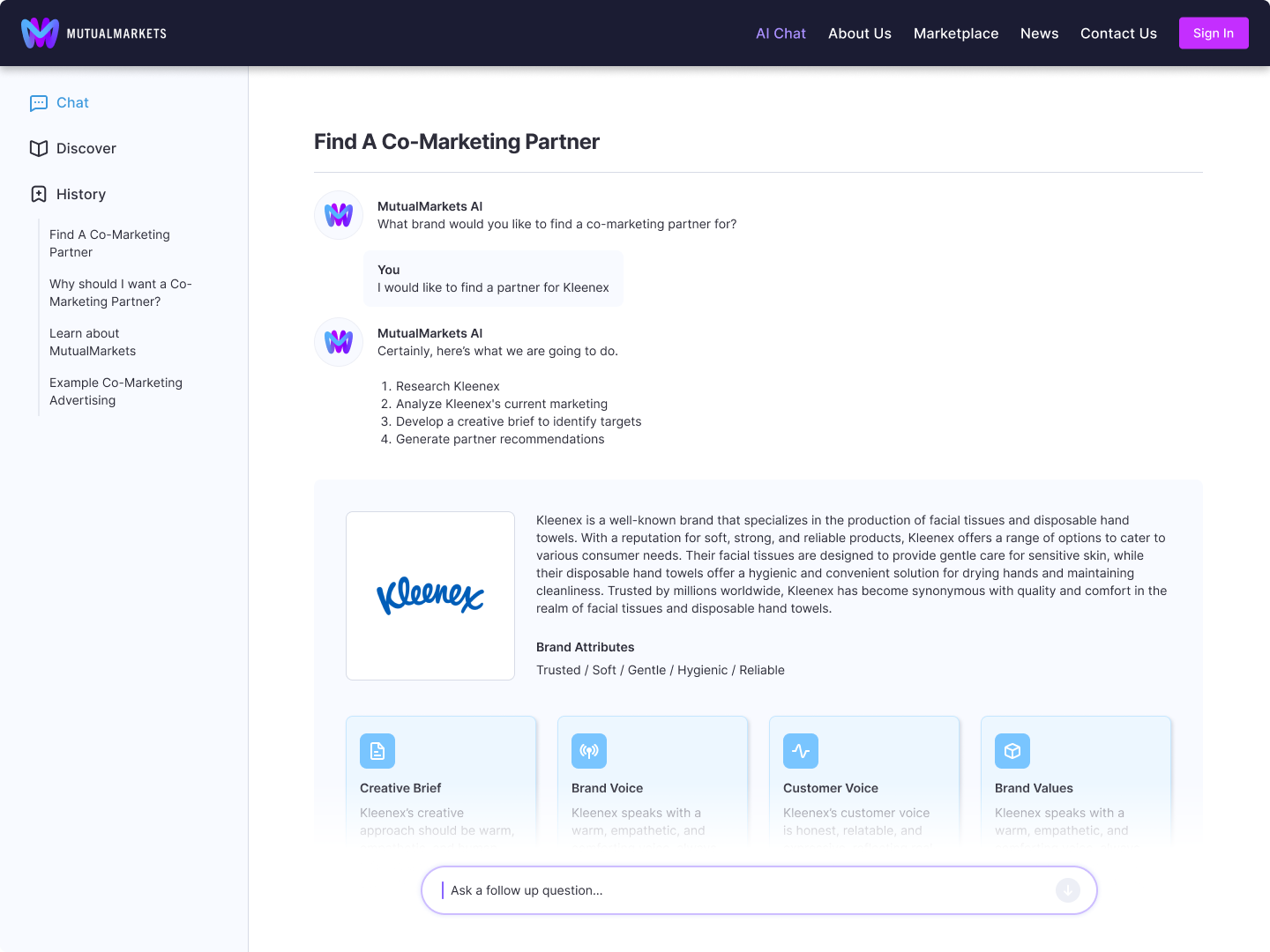Thank you for your interest in my work.
This portfolio highlights my work as the founding designer at MutualMarkets, where I led product design for a platform that enables brands to discover entertainment partners and launch co-marketing campaigns.
Explore selected projects that demonstrate my approach to product design.
Building a 0→1 product and design organization.
I helped build MutualMarkets from the ground up, establishing the full design ecosystem. I defined the UX vision, created a scalable design system, and designed a 0→1 platform for partner discovery, deal-making, and AI-powered creative workflows. I launched the MVP, partnered closely with engineering to ship AI-driven features, and aligned product, design, and leadership around a shared strategy.
Beyond the platform, I led research, UX strategy, and end-to-end design execution while managing freelance creative talent across digital, print, and video. The systems and experiences I designed supported multiple multimillion-dollar funding rounds and positioned the company for growth and acquisition—balancing startup speed with enterprise-level craft.
Selected Projects
The screen images below link to detailed project pages with interactive Figma prototypes for you to explore.
